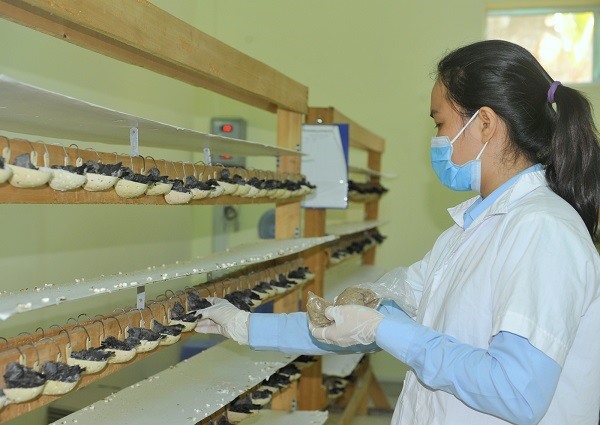 Economy
Economy

Việt Nam's bird's nests exports are expected to swell in the coming year.

|
The total output of bird’s nests is expected to reach 160 tonnes of unprocessed bird’s nests in 2025. — VNS Photo
HÀ NỘI — Việt Nam's birds nest exports are expected to swell in the coming year.
According to Deputy Minister of Agriculture and Rural Development Phùng Đức Tiến, procedures needed to export bird’s nests to China are almost completed. Việt Nam expects to ship the first batch of this product to China in the first quarter of 2021, the world’s largest bird’s nest consumption market.
Đỗ Tú Quân, head of the Việt Nam Swiftlet Farming Association, said the total output of bird’s nests is expected to reach 160 tonnes of unprocessed bird’s nests in 2025. Most of the output will be exported to China to the tune of 100 tonnes, earning US$150 million.
The remaining 60 tonnes will be processed to 42 tonnes of clean bird’s nests. Of which, it expects to ship 16.8 tonnes of clean bird’s nests to Singapore and 8.4 tonnes to the US with export values of $58.8 million and $29.4 million, respectively. The rest of the clean bird’s nests will be consumed in the domestic market.
In 2021 the domestic swift breeding industry expects to achieve a turnover of about VNĐ3 trillion. The turnover is predicted to surge to VNĐ6 trillion in 2025 if Việt Nam develops a production chain of bird’s nests, processing technology for bird’s nests products and develops markets with many trade promotion activities for this product.
Quân said Việt Nam needs to build a brand name for Vietnamese bird’s nests in the world market together with the development of production chains for this product, Nông nghiệp Việt Nam (Việt Nam Agriculture) newspaper reported.
In recent years, the Ministry of Agriculture and Rural Development (MARD) has actively promoted exports of bird’s nests to foreign markets, including China. Due to the impact of the COVID-19 pandemic, negotiations to export the product to China have mainly been conducted via online meetings and procedures are almost completed, said Deputy Director of the MARD's Department of Livestock Breeding Nguyễn Văn Trọng.
Trọng noted that Vietnamese bird’s nests eligible for export could meet a third of the demand in the Chinese market, opening huge opportunities for this multi-million-dollar industry.
Forty-two out of 63 provinces and cities in Việt Nam participate in the swift breeding industry with a total of 20,000 birdhouses and an annual volume of approximately 120 tonnes, worth about US$450 million.
Việt Nam’s swift breeding industry began to thrive in 2010, with the volume accounting for 3 per cent of the global bird’s nests production. The southern province of Kiên Giang has the largest number of birdhouses at 2,600.
Although bird’s nests are a speciality of high economic value in Việt Nam and one of the 10 most expensive dishes in the world, their production value remains low and cannot be compared with traditional agricultural products, and they have yet to be classified in the group of national key products. VNS




